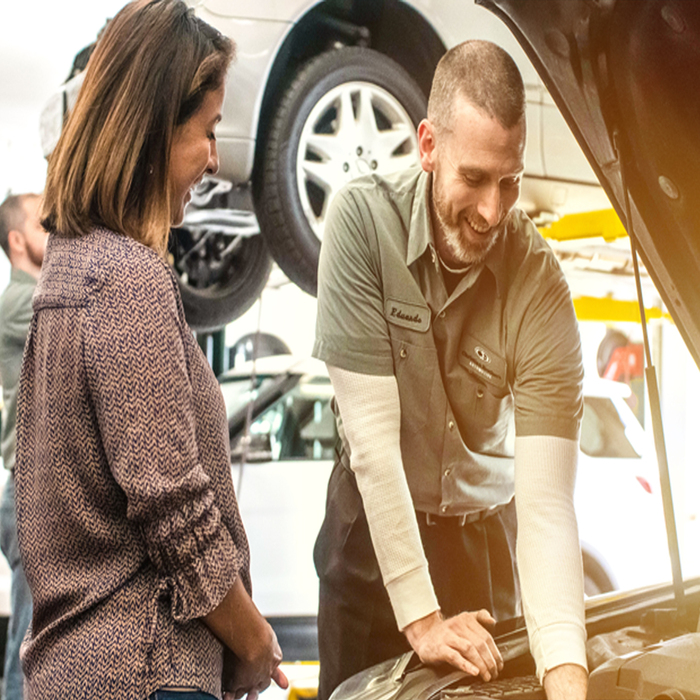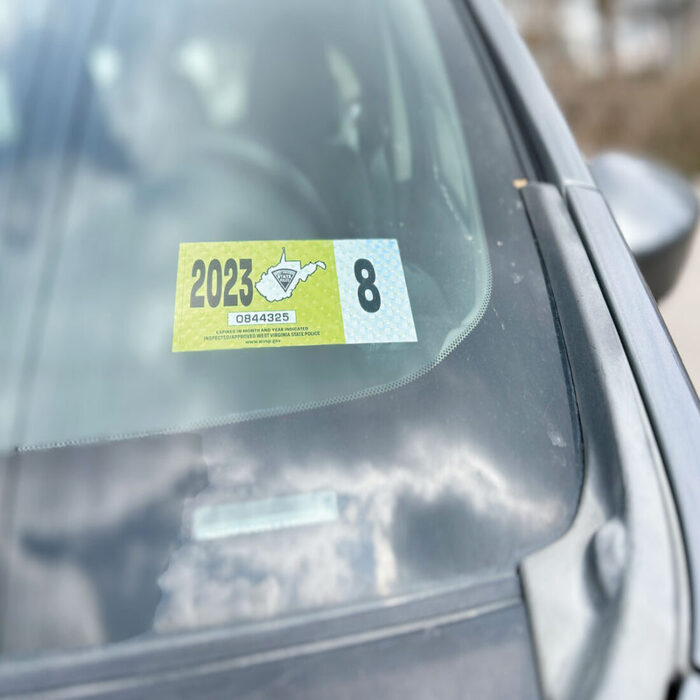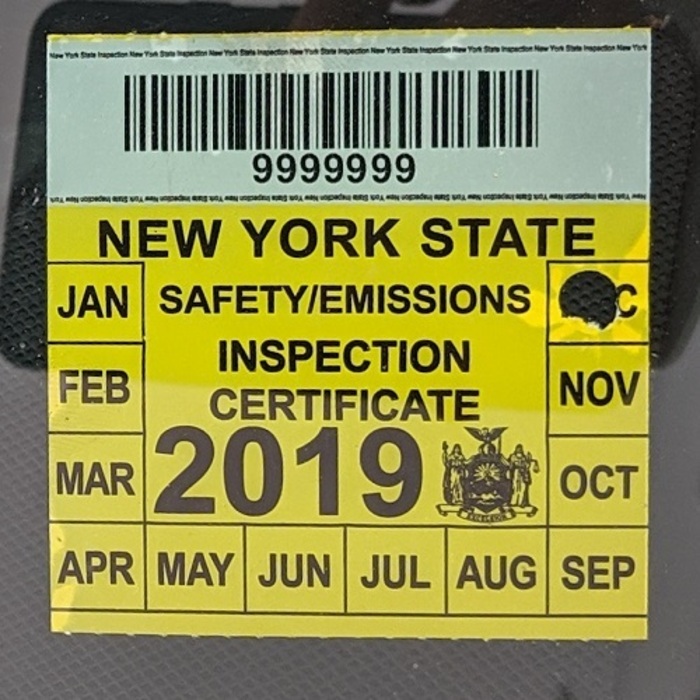The Importance of Pre-Purchase Inspections
When you’re on the hunt for a used vehicle, one critical step should never be skipped: the pre-purchase inspection. Bought a used car without inspection sticker maybe have a risk. This process involves taking the car to a trusted mechanic. They will give the car a thorough check to discover any hidden issues. Here are key reasons why this step is vital:
- Uncover Hidden Problems: Even if a car looks perfect on the outside, it might hide serious mechanical issues. A mechanic’s expert eye can spot these before you buy.
- Save Money: Identifying potential problems early can save you from costly repairs later on. It’s better to know what you’re getting into ahead of time.
- Peace of Mind: Knowing the true condition of the car gives you confidence in your purchase. It reduces the anxiety of unforeseen troubles.
- Safety First: Your safety on the road is paramount. An inspection ensures that the vehicle is safe to drive.
- Negotiation Leverage: If issues are found, you have the upper hand. You can negotiate a lower price or ask the seller to fix the problems.
- Avoid Legal Hassles: If you discover problems after the purchase, resolving them can be legally complicated. An inspection helps you avoid this mess.
Many buyers have regretted skipping the inspection, especially when problems arose soon after purchase. Don’t just take the dealer’s word that the car is in good condition. Remember, they often have no legal obligation to ensure the vehicle is problem-free post-sale. An inspection serves as your due diligence, guarding you against buying a lemon. It’s a small investment compared to the cost and stress of dealing with avoidable car issues later on.

Consequences of Skipping an Inspection
Choosing not to get a pre-purchase inspection when you’ve bought a used car without inspection can lead to various issues. Risks and implications can catch you off guard. Here’s what you might face:
- Immediate Repairs: Without an inspection, you could be blindsided by immediate repair needs. The costs could run high.
- Safety Concerns: You might find out too late that the car isn’t safe. It can put you and others at risk.
- Reduced Resale Value: If the car has hidden problems, its value drops. You lose out if you try to sell it.
- No Legal Stand: If problems arise, having no prior inspection weakens your legal position. You might have no case against the seller.
- Warranty Issues: ‘As-is’ sales often mean no warranty. If something fails, the cost is on you.
- Stress and Regret: Discovering issues post-purchase can cause a lot of stress. Regret is common when you skip the inspection.
Remember, a little effort today can save a lot of trouble tomorrow. The decision to skip a pre-purchase inspection might seem like a time saver, but it could lead to time-consuming and expensive consequences. That’s why it’s essential to make sure the vehicle is thoroughly checked by a professional mechanic before finalizing the purchase. This step is a crucial part of checklist if bought a used car without inspection sticker.
Understanding ‘As-Is’ Sales and Legal Protections
Purchasing a used car ‘as-is’ can be risky. Especially bought a used car without inspection sticker. Often, cars sold ‘as-is’ come with no guarantees. When you buy ‘as-is,’ you accept all the car’s faults. The seller is not liable for future problems. This means you can’t blame them for any issues post-sale.
In many states, ‘as-is’ is the default for used car sales. For example, in Michigan, ‘as-is’ sales protect sellers, not buyers. Buyers must beware of purchasing vehicles with hidden problems. You must accept all current and future issues of the car. There are no seller promises to fix issues later.
Dealers may ask you to sign a purchase agreement. This ensures their protection and limits your recourse. Oral statements by salespeople are often not included in this final contract. Even if they verbally promise something, it may not be binding. Always check if the dealer’s claims are in the written contract.
In legal terms, without an inspection, your standing is weak. If the car has problems, a lawyer will first ask if it was inspected. If not, you may have no case against the seller. It’s crucial to get the car checked before purchase.
Two common reasons people skip inspections are urgency and trust. Buying sight-unseen off the internet often results in overlooking ‘as-is’ warnings. Even in person, excitement and trust in verbal promises may lead to quick decisions. These can result in expensive and stressful situations.
Lastly, never rely solely on a seller’s words about a car’s condition. Whether from a dealership or an individual, get an expert mechanic to check the car. A professional inspection is your best safeguard against buying a problem vehicle.

The Risk of Buying Cars Online Without Seeing Them
The internet offers countless opportunities to find used cars. However, buying a car online without seeing it first poses significant risks. Here are problems you may encounter with such a purchase:
- Hidden Issues: Photos can hide serious flaws. A car that looks great online might have hidden mechanical problems.
- Misleading Information: Sellers may exaggerate the car’s condition. You rely solely on their words and pictures.
- Overlooking ‘As-Is’ Warnings: Online listings often note cars are ‘as-is.’ Many buyers ignore this, leading to trouble later.
- No Test Drives: You can’t test drive or feel the car. This means you miss out on detecting potential issues.
- Internet Scams: Some online deals are scams. Always be wary and do your research.
When excitement gets the better of you, it’s easy to ignore the risks of buying a car online. Even with in-person purchases, people often make fast decisions based on emotional responses. Remember, photos and descriptions are no substitute for a mechanic’s inspection. To avoid buying a used car without inspection, always insist on seeing the vehicle and having it professionally evaluated.
Dealer’s Verbal Statements vs. Written Agreements
When buying a used car, words matter. But written words matter more. Dealers might promise quality or fixes verbally. Trusting these words can lead to trouble. Here’s why you should focus on written agreements:
- Verbal Promises May Not Hold Up Legally: Dealerships can say they’ll fix issues. Yet, without it in writing, it’s not guaranteed.
- Contracts Are Binding: The written purchase agreement is what counts. It holds up in court, verbal promises don’t.
- Protect Your Purchase: Ensure all promises are in the contract. This safeguards your rights.
- Ask for Clarification: If a salesperson says something important, ask for it in writing. Then, make sure it’s part of the final signed contract.
Remember, buying a car is a significant investment. Don’t rely on the dealer’s word alone. Always get promises in writing before completing a sale.
Many buyers have regretted not doing this. If they bought a used car without an inspection sticker, they took a big risk. Advertisements may boast pre-inspection, but verify it.
Insist on a clear, concise purchase agreement. Check if the dealer’s verbal statements are documented. Before you sign, read carefully. Understand every part of the contract.
Be cautious and thorough to avoid post-purchase regrets. Seek professional advice if needed. Written agreements give you a clear path if problems arise after buying the vehicle. Buying a used car without inspection is risky. Make sure you are protected.
Using Inspections as a Negotiation Tool
When you’re buying a used car, an inspection is not just about safety or avoiding future costs. It’s a powerful tool in your negotiation with the seller. Here’s how you can use an inspection to your advantage:
- Reveal Issues: An inspection can uncover problems that the seller may not have disclosed. This knowledge is powerful.
- Price Leverage: If the car has issues, you can ask for a price reduction. You’re in a stronger position with an inspection report in hand.
- Seller Responsibility: Sometimes, unveiling issues can push the seller to make repairs before the sale. It’s an opportunity for them to show good faith.
- Avoid Overpaying: Knowing the true condition of the car ensures you don’t pay too much. Overpricing is common when buyers don’t have full information.
- Confidence in Your Offer: With a professional report, you can make a firm offer based on solid facts. This shows you’re serious and well-informed.
- Walk Away If Needed: If too many issues come up, you can walk away from a bad deal. This is sometimes the best negotiation move.
Remember, never skip the inspection when you’ve ‘bought a used car without inspection sticker’. It might seem like an extra step, but it is a critical part of the car buying process. A thorough inspection helps you understand what you’re buying and gives you the confidence to negotiate effectively. So, always include a pre-purchase inspection in your used car buying checklist to ensure that you have the upper hand in negotiations.

Recommendations for Seeking Professional Inspections
When you’re looking to buy a used car, a professional inspection is key. Here are tips on getting the right one:
- Choose Certified Mechanics: Look for mechanics certified by automotive organizations. They have the right skills.
- Ask for a Detailed Report: Ensure the mechanic provides a report. It should list all issues found.
- Check for Previous Repairs: A good inspector will check for past fixes. This shows the car’s history.
- Consider Specialty Shops: Some cars need experts in their brand. Find shops that specialize.
- Inquire About Guarantees: Some services offer inspection guarantees. These can give you extra security.
- Use Inspections for Negotiations: Share the inspection report with the seller. It helps you talk price.
- Be Present During Inspection: If possible, go to the inspection. You can see issues firsthand.
Remember, a mechanic’s approval is vital before you buy. It saves you from unforeseen costs. Pay attention to red flags they may find. It’s better to invest in a check-up than to face costly repairs later. Lastly, don’t rush. Take your time to get the car assessed thoroughly. Careful buying leads to a good ride.
Additional Resources for Informed Car Buying Decisions
Making the right decision when buying a used car requires access to the right resources. Here are additional tools and tips to help you stay informed and make a wise purchase:
- Online Forums and Communities: Join car enthusiast forums and communities. Here, experienced owners share insights and advice on used car purchases.
- Vehicle History Reports: Obtain a detailed report of the car’s history. This can reveal past accidents, service records, and ownership changes.
- Consumer Reports: These reports offer unbiased ratings and reviews. They help you understand the reliability and performance of different car models.
- Local Mechanic Networks: Establish relationships with trusted local mechanics. They can be invaluable for inspections and advice.
- Government Consumer Protection Sites: Websites like the Federal Trade Commission offer tips on avoiding scams and understanding your rights.
- Educational Videos: Watch videos by automotive experts. They provide visual guides on what to look out for in a used car.
- Lemon Law Information: Familiarize yourself with your state’s Lemon Laws. They can offer protection if you unknowingly buy a defective vehicle.
By utilizing these resources, you’ll gain a well-rounded view of the used car market. This approach prepares you to ask the right questions, spot potential issues, and negotiate better deals. Remember, being informed is your best defense against buying a used car without an inspection sticker and facing the resulting troubles.


